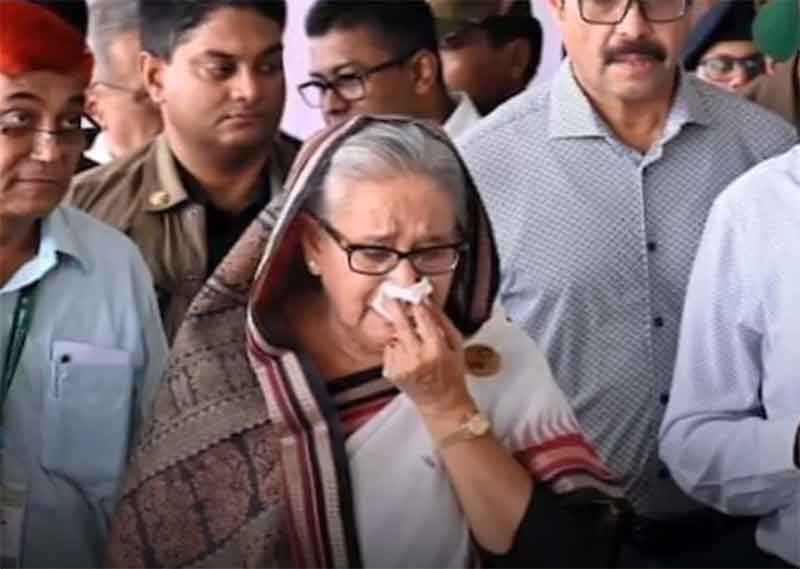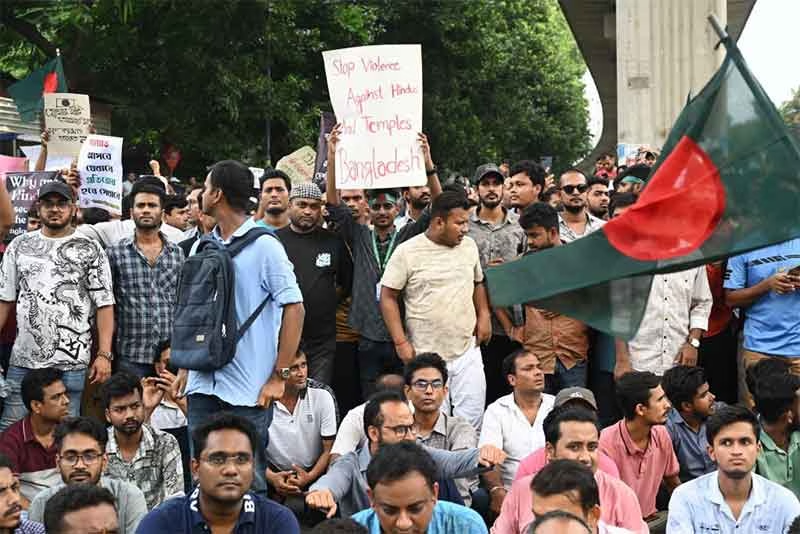
Sheikh Hasina has quit as Bangladesh Prime Minister and fled the country. Bangladesh Army chief General Waker-Uz-Zaman said that the Army will form an interim government and has appealed to the protesters to return to the path of peace. Hasina, who started her fifth term as Prime Minister earlier this year, left state capital Dhaka in a military aircraft and may be headed to India.The 76-year-old is accompanied by her younger sister, Sheikh Rehana. Protesters demanding her resignation have stormed Gono Bhaban, the Prime Minister’s official residence. The Bangladesh Army had given a 45-minute ultimatum to the Prime Minister to step down.
“There is a crisis in the country. I have met Opposition leaders and we have decided to form an interim government to run this country. I take all responsibility and promise to protect your life and property. Your demands will be fulfilled. Please support us and stop violence. If you work with us, we can move towards a proper solution. We cannot achieve anything through violence,” Army chief General Waker-Uz-Zaman said.
Visuals of protesters vandalising a statue of Sheikh Mujibur Rahman, Ms Hasina’s father and the tallest leader in the country’s history who led its fight for Independence from Pakistan, are playing out on Dhaka’s streets. The visuals mark a massive shift in the country’s political landscape. The legacy of Mujibur Rahman, fondly known as Bangabandhu, is no longer a symbol of Bangladesh’s war of liberation. Instead, it represents her daughter’s politics that protesters claim has focused on suppressing dissent.
India Is Learnt To Have denied asylum to Sheikh Hasina after she landed in Agartala. Sources told ABP reported that India told her after negotiations that it will extend all help but wont be able to offer asylum. It is learnt that she is now headed to either Finland or Switzerland.
The protests in Bangladesh, which began last month and escalated swiftly, started as an agitation against a quota system under which 30 per cent of government jobs were reserved for family members of Muktijoddhas — those who fought in Bangladesh’s war of independence in 1971. The protesters have said this system favours supporters of the ruling Awami League and want a merit-based system to replace it. As the protests grew, the Awami League dispensation tried to crush it with an iron hand. In the clashes that followed, more than 300 people were killed.
Subscribe to Our Newsletter
Get the latest CounterCurrents updates delivered straight to your inbox.
Reservation has been a burning issue in Bangladesh for several years now. In 2018, an agitation on this issue forced the government to water down the reservation system and cancelled quotas for some positions.
The latest unrest was sparked by a high court order that declared illegal the 2018 government circular cancelling 30 per cent quota for freedom fighters’ descendants in government jobs.
This order was scrapped by the country’s Supreme Court. The Supreme Court ordered that 93 per cent of government jobs must be allocated on the basis of merit and the remaining be reserved for relatives of freedom fighters. But even the top court’s order could not pacify the protesters.















































